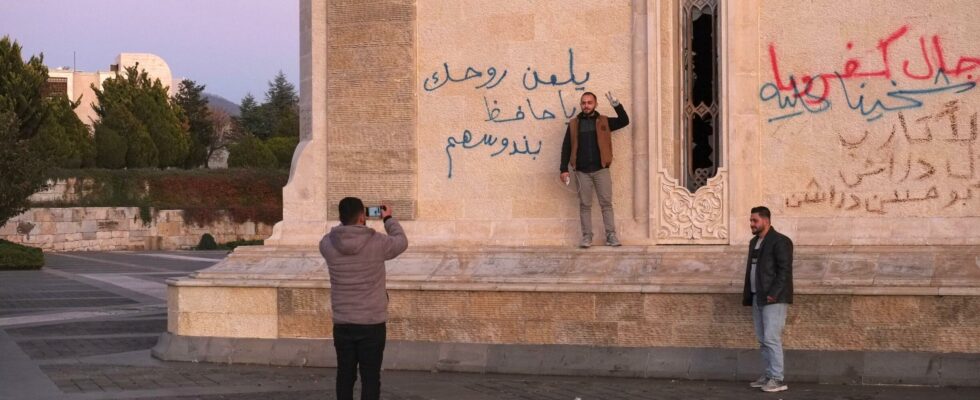While dictator Bashar al-Assad found refuge with his Russian allies, his father’s grave, which rested in the family village, was burned by rebels from the HTS group. Since then, Syrians have been flocking from all over the country to spit on his coffin.
2 mins
With our special correspondent in Qardaha, Manon Chapelain
The interior of the mausoleum is still flooded with thick smoke. The walls are covered in soot. The ground, littered with burnt roses, pieces of broken windows, dozens of empty Kalashnikov cases. Three days ago, HTS rebels came here to burn the grave of Hafez al-Assad, the father of Bashar al-Assad.
Also readThe fall of Bashar al-Assad, a military setback for Russia in the Mediterranean
Yassine arrived from Aleppo to see the desecrated grave of the man, he said, who did so much harm to his country. “ We came here for the sole purpose of spitting on his grave. We even quit our jobs, just for that! And too bad if the road was long and complicated, with a lot of checkpoints and controls “, he says.
“ This man was a criminal, a killer »
Hafez el-Assad rested here in Qardaha, the original village of the Assad family since his death in 2000. For 30 years, he ruled the country with an iron fist, like his son, with terror , torture and abuses. Hassan and Graith come from Hama, where the dictator ordered the massacre of more than 10,000 people in 1982. They take a photo today with their feet on his grave. Before leaving with a piece of burnt coffin.
“ We would never have dared to dream that this day could come. We never thought we would be standing here one day. This man was a criminal, a killer, he massacred and tortured so many people, he stole our homes, our money. And he left us with nothing », laments Hassan. “ Look at this palace, it was so luxurious, and all only for a tomb! While most Syrians are dying and have nothing to eat », Adds Graith.
Outside, fighters in fatigues take photos of themselves, fingers forming the V for victory. On the wall, they leave inscriptions behind them: “ We told you that one day we would come back “.
Also readSyria: fugitives from the fallen regime
